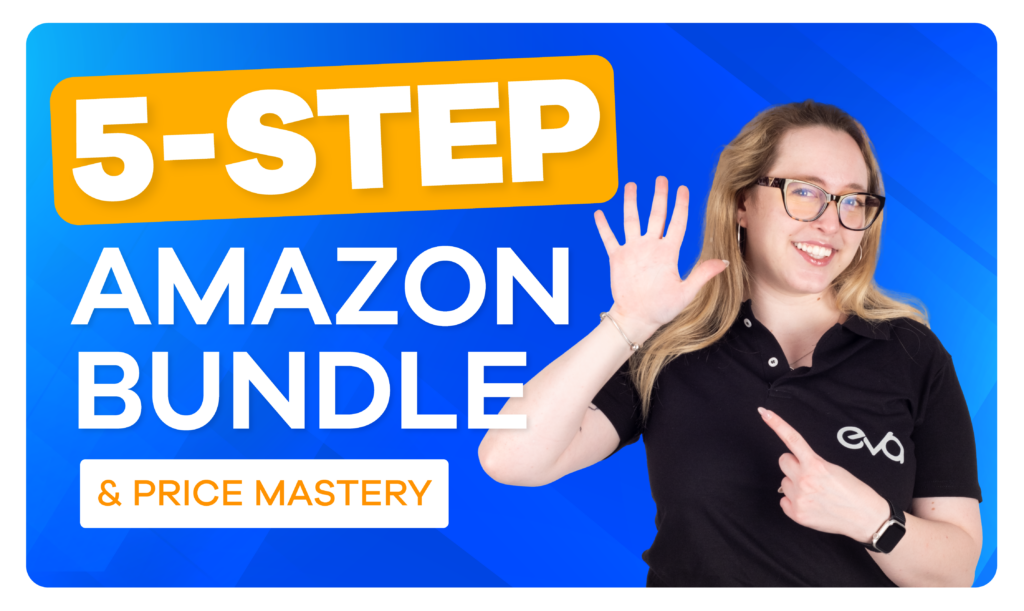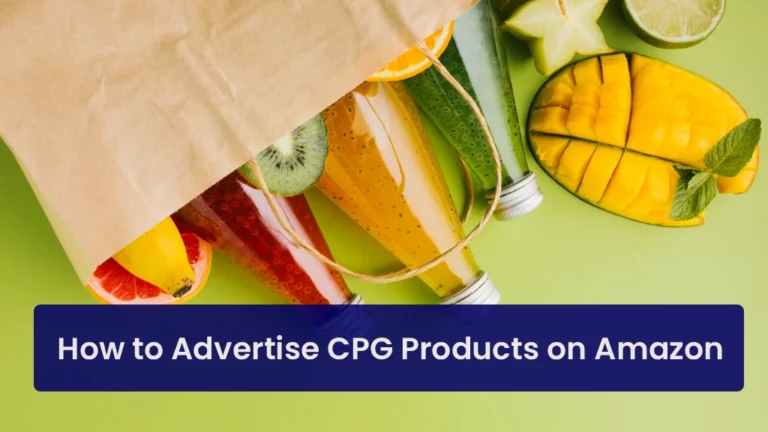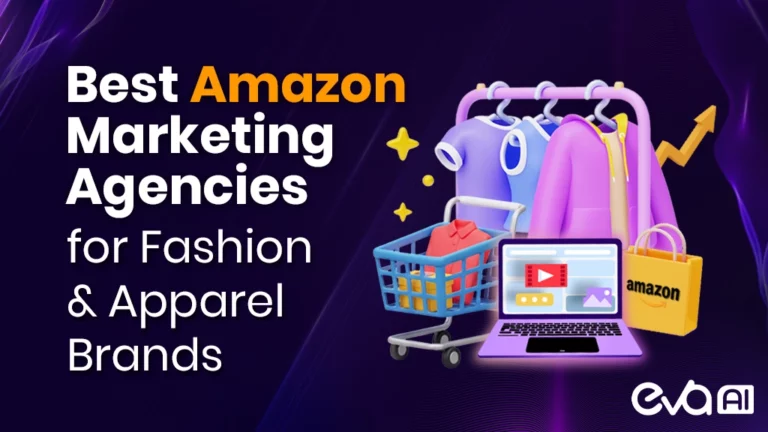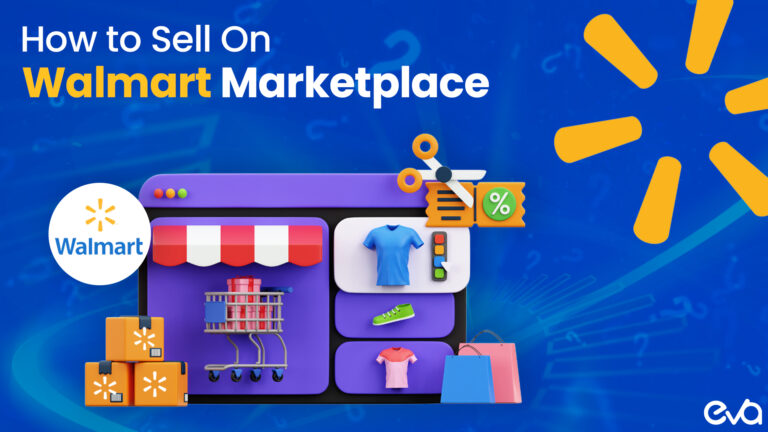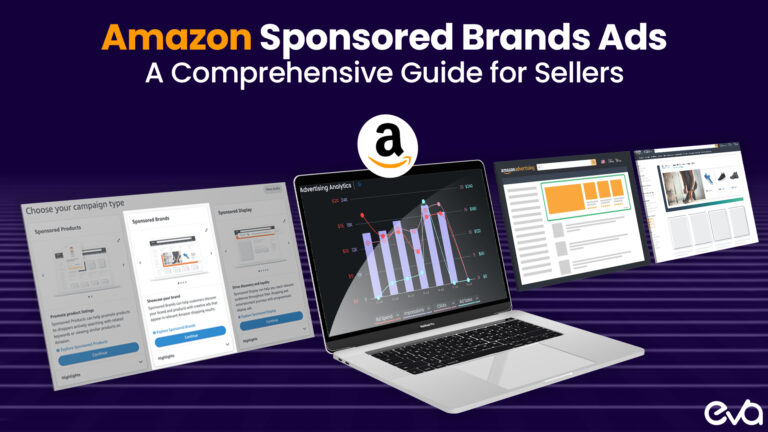In the dynamic world of e-commerce, Amazon comparatively stands out as a dominant force. In order to succeed in this competitive arena, it’s crucial to embrace innovative strategies. One such strategy, often overlooked, is the art of Amazon product bundling. This approach not only has the potential to enhance your sales and revenue but also to distinguish your brand and improve the overall shopping experience. In this detailed guide, we will delve into the realm of Amazon product bundling, offering you a one step at a time approach.
Table of Contents
The Significance of Amazon Product Bundling
Before we delve into the steps of creating Amazon product bundling, let’s explore why it’s a strategy worth your attention:
Amplify Sales with Thoughtful Bundles
In a crowded marketplace, unique product bundles can set your offerings apart, bringing more potential buyers in.
Results show that products sold as bundles can experience a significant sales boost because a well-thought bundle with complementary products is a great convenience for the customer which makes the bundling strategy is a proven revenue generator.
Bundling isn’t just about growing your sales; it’s also about serving value to your customers.

Discover How To Supercharge Your Profits From Amazon & Beyond
Tech – unlock more revenue, increase efficiency & maximize profitability with integrated AI solutions
Agency Services – our ex-Amazonian team provides key insights, expertise & handles everything for you from A-Z
3PL Fulfillment Solutions – real-time inventory management connected to Eva tech across Amazon marketplaces
Optimize Inventory Management
With virtual bundles, you don’t need to worry about dealing with physical inventory for bundled products, which can be a significant logistical advantage but we will get into that later on.
Data analysis is not enough for managing your inventory effectively therefore bundling slow-moving items with popular ones can help reduce storage costs and improve inventory turnover.
Elevate Profit Margins
Smart bundling allows you to charge a premium. When done right, sellers often see a noticeable increase in profit margins.
Physical vs. Virtual Bundles: Unpacking the Differences
When considering Amazon product bundling, it’s a must to recognize that bundles come in two primary forms: physical and virtual.
Each type has its unique perks and benefits.
Physical Bundles:
In a physical bundle, you combine two or more products into a single package. For instance, if you’re selling kitchenware, you might bundle a set of knives, cutting boards, and cooking utensils. Physical bundles are excellent for increasing the perceived value of your products and offering customers a more comprehensive solution. They can also help reduce shipping costs and inventory management challenges by selling multiple items together.
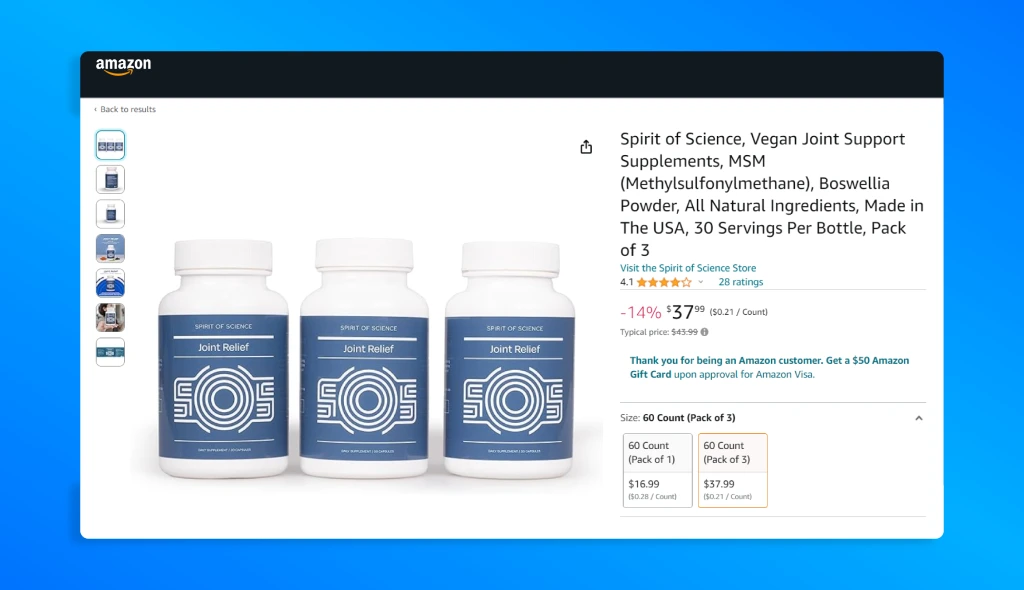
Virtual Bundles:
On the other hand, Virtual bundles, don’t involve physically bundling items together. Instead, they are collections of products that customers can select and purchase as a bundle on your Amazon store page. But this means it only works if you are using FBA.
For example, if you’re selling software, you could offer a virtual bundle that includes your main software program, premium add-ons, and online guides. Virtual bundles are versatile because they allow customers to choose the specific products that interest them the most and packaging makes your brand unique!
Benefits of Virtual Bundles
It offers several advantages for both sellers and customers:
1. Enhanced Customization:
Customers appreciate the ability to select the specific products they want, creating a personalized shopping experience.
2. Reduced Inventory Management:
You don’t need to worry about managing physical inventory for bundled products, which can be a significant logistical advantage.;
No additional UPC barcode is needed when creating virtual bundles. Unlike regular bundles, virtual bundles do not involve packaging multiple items together as a new product that requires separate shipping and tracking.
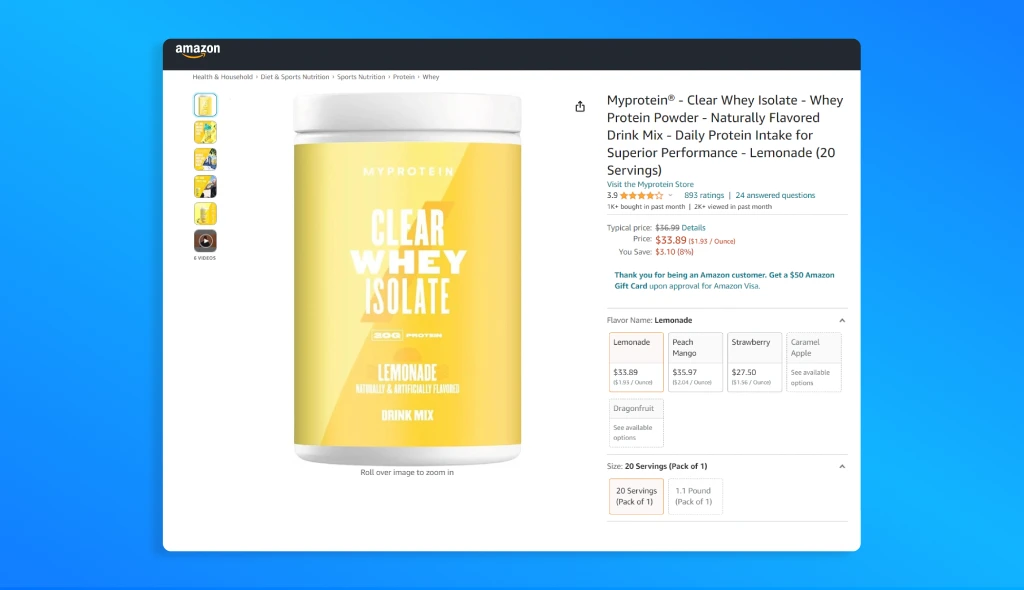
Step 1: In-Depth Market Research
The foundation of a successful Amazon product bundle begins with thorough market research:
Identify High-Demand Products
Leverage data-driven tools to identify high-demand products within your niche. This approach minimizes guesswork and maximizes your chances of success.
By understanding the differences between physical and virtual bundles and harnessing the benefits of virtual bundling, you can further optimize your Amazon sales strategy and cater to a broader range of customer preferences.
Step 2: Select Complementary Products
After identifying potential products, focus on selecting items that complement each other seamlessly:
Ensure Relevance
Explore data sources such as Amazon’s “Frequently Bought Together” section to discover products that align well within your niche. This section simply works like a guide for you to create your own bundle!
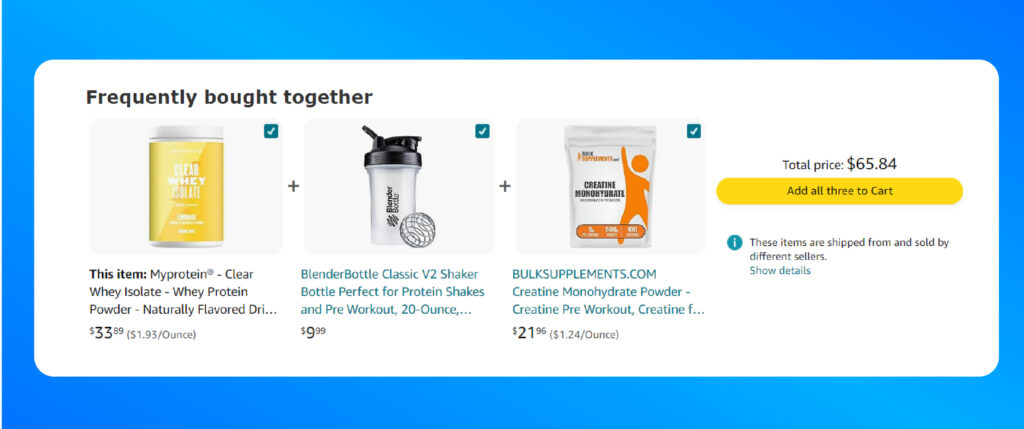
Verify Compatibility
Customer reviews are a goldmine of information. Analyze these reviews to ensure that the bundled products are compatible and meet customer expectations. Also, always keep in mind that being able to empathize with your niche audiance will play a keyrole on your creation.
Step 3: Pricing Strategy
Pricing is a delicate balance between offering value and ensuring profitability:
Competitive Pricing
Use data to monitor the pricing of individual items and compare it to the bundle’s price.
Ensure that your bundle offers a discount; your price should be lower than the sum of the total price of the products combined, otherwise you will lose the Buy Box!
Incorporate your costs and desired profit margins into your pricing strategy; data analysis ensures your pricing is both competitive and profitable.
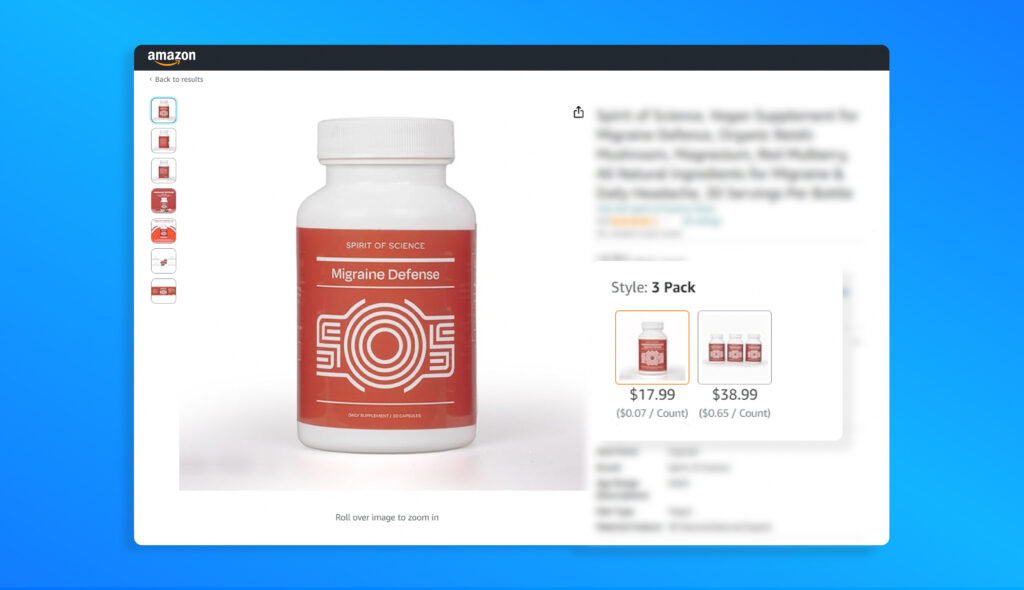
Step 4: Crafting an Attractive Listing
Your product listing is your digital storefront, so make potential buyers drawn to it:
High-Quality Images
Utilize data-backed insights to provide high-quality images of the bundled products. This can significantly enhance your listing’s appeal.
Clear and Engaging Description
Craft a persuasive product listing for your virtual bundle. Clearly explain the value customers receive by purchasing the bundle, such as cost savings, convenience, or enhanced functionality. Craft an impressive product description based on data analysis.
A/B testing can help you refine your descriptions for maximum impact.
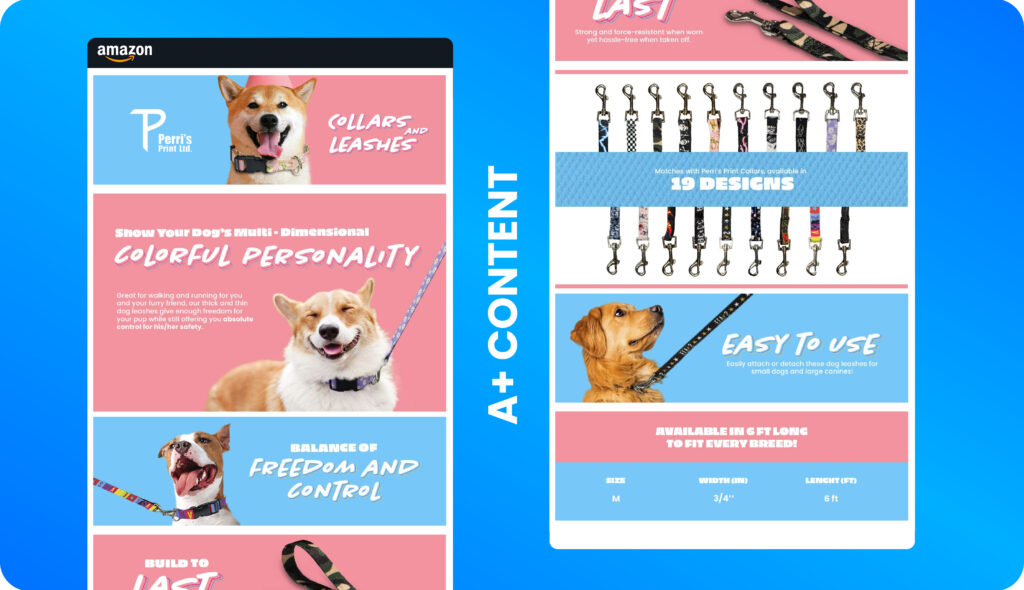
Step 5: Promoting Your Bundle
Creating a bundle is only the beginning; effective promotion is a must:
Utilize Amazon PPC
Gather data from your PPC campaigns to refine your targeting and maximize your bundle’s exposure.
Embrace Social Media Marketing
Monitor the performance of your social media promotions through data analytics since data-driven insights should guide your strategy.
Last Step: Eva, as Your Ally
With all that being said, we understand that mastering the world of e-commerce and solving data analytics while creating your own brand can be an overwhelming journey.
Eva, your All-In-One AI Services Provider, offers a comprehensive solution that covers every step, from data analysis to creating A+ content with a holistic approach.
We’re dedicated to helping you succeed with data-driven strategies. Our integrated AI platform and services are designed to empower you with the tools and insights needed to master Amazon product bundling.
With a team of ex-Amazonian experts and end-to-end solutions, Eva is your ultimate partner for maximizing traffic, conversion, availability, and profits on Amazon. With Eva by your side, you can navigate the world of Amazon with confidence, knowing that you have the support you need.
Book a demo with Eva today and unlock the full potential of your Amazon business. Your journey to success begins here!
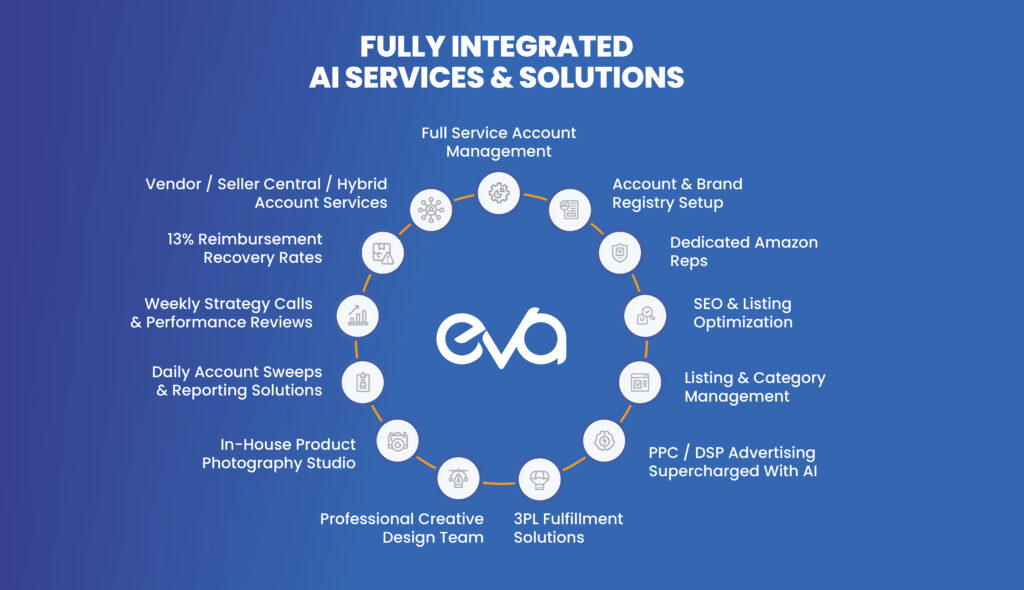
Conclusion
In summary, Amazon product bundling is a powerful strategy that can elevate your e-commerce business. By incorporating data-driven market research, thoughtful product selection, competitive pricing, and effective promotion, you can create bundles that not only increase sales but also delight your customers.
Don’t miss out on the opportunity to boost your revenue and stand out in the competitive Amazon marketplace. Start implementing product bundling strategies today.

